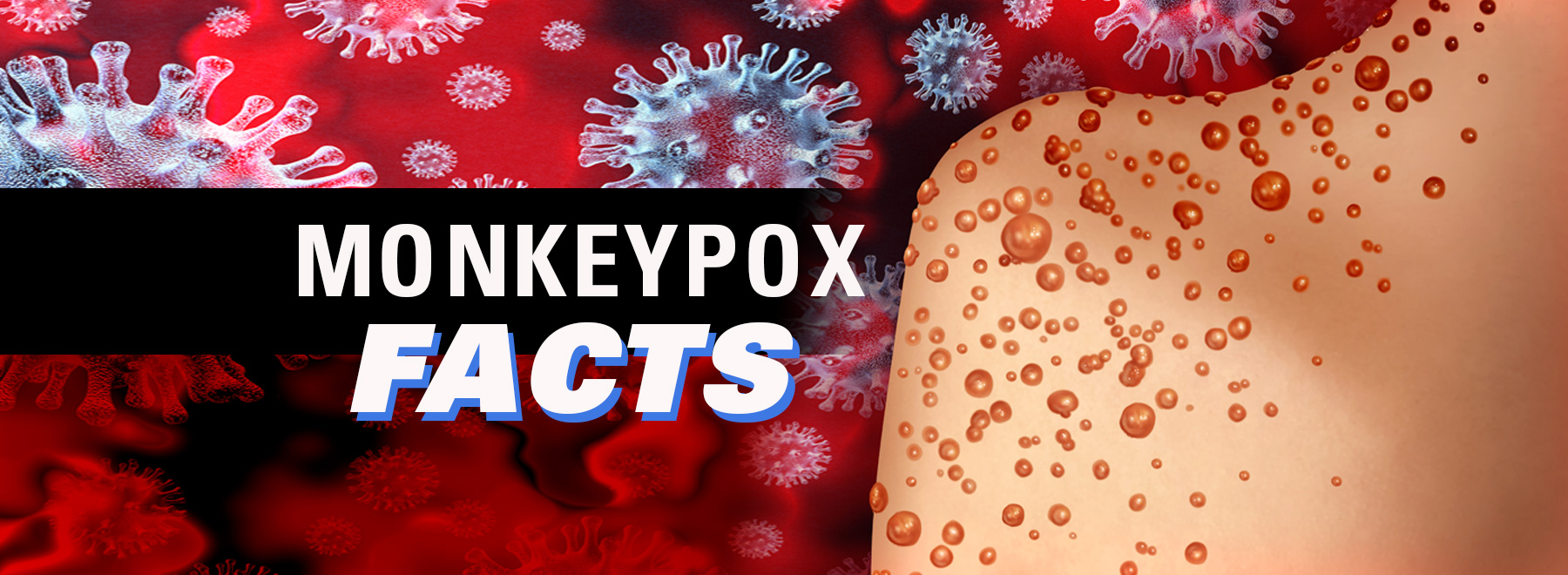Risk remains low for viral spread in Mississippi
Editor’s note: This article was updated on July 26, 2021.
Mississippi announced the state’s first case of monkeypox July 25, but experts at the University of Mississippi Medical Center say that for now, there is no need to panic.

“Currently, the risk to the general population is low,” said Dr. Bhagyashri Navalkele, UMMC’s medical director for infection prevention. “This virus requires direct contact with infectious lesions to spread and is not likely to become a pandemic.”
But concern is growing. On July 23, the World Health Organization declared the outbreak of monkeypox a global emergency.
The Mississippi State Department of Health reported the patient’s specimen was tested at the MSDH public health laboratory. An investigation to identify persons who may have encountered the patient while they were infectious is ongoing, the agency said in a news release. People exposed to someone with active monkeypox would show symptoms in one to two weeks.
"The global monkeypox outbreak represents a public health emergency of international concern," WHO Director-General Dr. Tedros Adhanom Ghebreyesus told news media during a July 23 briefing in Geneva.
Monkeypox is a rare virus caused by an orthopoxvirus, related to smallpox and cowpox. It gets its name from a monkey colony that experienced an outbreak in the 1950s. However, scientists think rodents are the more likely reservoir for this zoonotic infection. The earliest documented human cases come from central and western Africa in 1970.
There have been periodic outbreaks, primarily in Africa, though a 2003 United States outbreak linked to prairie dogs resulted in 71 human cases.
Doctors identified the first cases of the 2022 global outbreak in the United Kingdom in May. As of July 25, 3,487 cases had been confirmed in the United States, with no reported deaths. “While this is the first reported case in Mississippi, it remains likely that other cases will be identified as well,” MSDH said in its news release.
There were about 14,000 cases globally as of July 26.
“The good news is that monkeypox is not like COVID,” said Navalkele, assistant professor of medicine in the Division of Infectious Diseases. “It’s not likely to spread between two people just because they are in the same room because it is not a respiratory virus.”
Instead, monkeypox spreads through “direct, close” physical contact, Navalkele said. The virus spreads through the sores, scabs and body fluids from an infectious person. That can including bed-sharing, kissing, sex or other intimate contact, as well as unprotected contact with materials used by an infected person, like clothing or bedsheets. It can also spread through droplet spread, but that requires prolonged close contact, such as being within six feet of an infectious person, unmasked for three or more hours.
Further, the only time window when someone infected with monkeypox is infectious is while symptomatic, Navalkele said.
Typically, the early monkeypox symptoms are similar to other viral infections: fever, aches, chills, and swollen lymph nodes. A rash or sores develop on the body about one to three days later.
However, “During this outbreak, we’re seeing something atypical with the presentation,” Navalkele said. “Patients are directly presenting with a rash,” meaning they do not experience the early symptoms.
Second, the rash is developing first in areas of the body it usually does not. Instead of the usual lesions around the face and hands, it is showing up first in anal and genital areas. Because of this, monkeypox cases may be misdiagnosed as syphilis or another sexually transmitted disease, Navalkele said. This could lead to delay in diagnosis, people receiving the wrong treatment and hurt contact tracing efforts.
The current outbreak, which is caused by a virus type from West Africa, has mild symptoms and low mortality. Less than one percent of patients have died. People who are immune-compromised, young children or pregnant may be most at-risk for severe or life-threatening complications if they contract the virus.
For most people, monkeypox will resolve on its own. For people with severe disease or complications, antiviral medications may work.
There are two approved vaccines for monkeypox. Navalkele said they are available pre-exposure for “specific high-risk” populations, such as laboratory and health care workers most likely to come encounter the virus. People may also receive a vaccine as post-exposure prophylaxis within four days of a confirmed monkeypox exposure to prevent them from developing symptomatic disease.
Otherwise, Navalkele recommends the same preventive measures as for other viruses. These include handwashing and avoiding contact with infected people or items they have used. This is especially the case for health care workers, who should follow standard procedures for workplace personal protective equipment such as gloves, gowns, face shields and masks.
“As long as they are following appropriate precautions, the risk is very low,” she said.
UMMC’s current response is education for employees who work in the units most likely to encounter monkeypox: outpatient clinics and the emergency department. Providers should ask patients with symptoms consistent with monkeypox about their travel history and possible exposures. They should also consider monkeypox when patients present with a suspected STD.
“These health care workers are the ones who will need to be most vigilant,” Navalkele said.
Learn more about monkeypox from the Centers for Disease Control and Prevention and the Mississippi State Department of Health.



